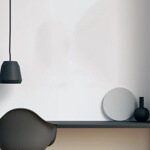Marco Alvise Pitteri (Venice 1702-1786) after David Teniers (Antwerp 1610 - 1690 Brussels)
In this large and finely executed engraving, a seated man, holding a glass and smoking a tobacco pipe, takes centre stage. His eyes and mouth are wide open and he looks straight at the viewer while a puff of smoke escapes from his mouth. His surprise is most likely caused by a cry from a game which gave the title to this print; ‘Le Roy Boit’. It refers to a drinking game played during Epiphany (a Christian feast day commemorating the visit of the Magi); according to custom, a King or Queen was chosen for the day who was invited to empty their glass with the exclamation ‘the king drinks’. It appears that we are presented with the sitter precisely at the moment that this cry was uttered.
The engraving, executed in Marco Pitteri’s astonishingly complicated technique in which he builds up the image with vertical lines that widen and narrow to convey variations in shade and light, is based on a painting by David Teniers II. The Antwerp painter David Teniers II, specialised, like his contemporary Adriaen Brouwer, in paintings showing peasants playing cards, drinking, dancing and smoking. During the 17th century, smoking was a relatively novel activity as tobacco had been introduces to Europe from overseas in the second half of the 16th century. Despite the strong dissaproval of church and state, its popularity quickly spread across all social strata. While perhaps not always evident to modern viewers, paintings showing tavern scenes did carry moral messages cautioning against the fleeting nature of sensual pleasures which could only lead to destruction. Such moral texts can often be found underneath engravings after paintings by Teniers and Brouwer. One such text, which can be found under an engraving showing a group of smoking men after a painting by Adriaen Brouwer, reads as following:
Tabificum frustra clamas, damnasque tabacum,
Quo sine nostrorum vivere nemo potest.
Ingluviem vino, ventrem perdicibus exple;
Nos tubus inque, tubo nubilia nata invent.
In vain we call tobacco pernicious
And condemn it, but none of us can live without it
Fill our throats with wine and our bellies with partridges
Let us indulge in the pipe and the smoke it produces.
While the present work does not carry such an accompanying text, its moral warning would undoubtedly not have escaped contemporary viewers.


